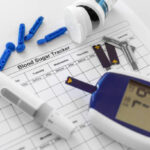In the past few decades, healthcare has undergone significant transformations, largely driven by advancements in technology. From telemedicine to artificial intelligence (AI), these innovations have dramatically reshaped how medical professionals diagnose, treat, and monitor their patients. As we look toward the future, it’s clear that technology will continue to play a pivotal role in revolutionizing the field of medicine. The integration of cutting-edge technologies is not only enhancing patient care but also making healthcare more accessible, efficient, and personalized.
In this article, we will explore how technology is changing the landscape of healthcare, the emerging trends that are shaping the future of medicine, and the potential challenges that come with these advancements. From the rise of telehealth to the integration of AI in diagnostics, we’ll examine how these innovations are improving patient outcomes and streamlining the healthcare system.
The Rise of Telemedicine and Remote Care
Telemedicine, which allows patients to consult healthcare providers remotely via video calls or other digital platforms, has seen exponential growth in recent years, especially following the COVID-19 pandemic. The convenience and accessibility that telehealth provides make it a desirable option for patients who cannot visit healthcare facilities due to distance, time constraints, or mobility issues. It also helps alleviate the burden on overtaxed healthcare systems.
The future of telemedicine holds exciting possibilities. With the development of wearable health devices, patients will be able to monitor their vital signs and transmit data to healthcare providers in real time. This level of remote monitoring can improve chronic disease management, prevent hospital readmissions, and ensure that healthcare professionals are always aware of their patients’ health status. Furthermore, AI-powered chatbots and virtual assistants are making it easier for patients to access medical advice and schedule appointments, even when a doctor is unavailable.
Artificial Intelligence: Transforming Diagnostics and Personalized Medicine
Artificial intelligence (AI) is one of the most promising technologies in the healthcare sector. AI’s ability to process and analyze vast amounts of data quickly and accurately makes it an invaluable tool for diagnostics. Machine learning algorithms are already being used to interpret medical images, such as X-rays, MRIs, and CT scans, with an accuracy level that rivals or even surpasses human clinicians in some cases.
The integration of AI is also enhancing personalized medicine, which tailors medical treatment to an individual’s genetic makeup, lifestyle, and environment. By analyzing a patient’s medical history and genetic data, AI can predict potential health risks and suggest personalized treatment plans. This approach allows for more precise interventions and better outcomes, particularly in the management of complex conditions like cancer, diabetes, and cardiovascular disease.
Robotics in Surgery: Precision and Minimally Invasive Procedures
Robotic surgery has become a cornerstone of modern medicine, offering patients less invasive options for a variety of procedures. These robotic systems allow surgeons to perform highly precise operations with smaller incisions, reduced blood loss, and faster recovery times. Technologies like the da Vinci Surgical System, for example, provide enhanced dexterity, 3D visualization, and greater control over surgical instruments, which can lead to better surgical outcomes.
Looking ahead, the future of robotic surgery will involve even more advanced systems that incorporate AI and machine learning. These innovations will help surgeons make real-time decisions during surgery, based on a vast database of medical knowledge. Additionally, advancements in haptic feedback technology will provide surgeons with a more tactile sense of touch, further improving their ability to perform delicate procedures with greater accuracy.
3D Printing in Medicine: Custom Prosthetics and Organ Development
3D printing is already making waves in the healthcare industry, especially in the field of prosthetics and organ development. 3D printers are being used to create custom prosthetics that fit a patient’s body more precisely, improving both comfort and functionality. These prosthetics can be produced more quickly and at a lower cost compared to traditional methods, making them accessible to more patients around the world.
The potential for 3D printing in medicine doesn’t stop at prosthetics. Researchers are exploring the possibility of 3D printing human tissues and organs, which could revolutionize organ transplantation. By using a patient’s own cells to print tissues, the risk of organ rejection could be minimized. While the technology is still in its early stages, the future of 3D printing in medicine holds great promise for personalized treatments and solutions to the growing organ donor shortage.
The Role of Big Data in Healthcare
Big data is playing an increasingly important role in healthcare, enabling providers to make data-driven decisions that improve patient outcomes. By collecting and analyzing large datasets from a variety of sources, including electronic health records (EHRs), wearable devices, and clinical trials, healthcare professionals can identify trends, predict patient outcomes, and develop more effective treatment plans.
Big data is also driving population health management, where healthcare providers use data to assess the health of entire communities and develop targeted interventions to address health disparities. For example, big data can help identify at-risk populations and ensure that resources are allocated effectively to prevent the onset of chronic diseases or manage existing conditions more efficiently.
Precision Medicine: Tailoring Treatments to the Individual
Precision medicine is an emerging field that focuses on tailoring medical treatments to individual patients based on their genetic makeup, lifestyle, and environmental factors. Unlike traditional medicine, which typically uses a one-size-fits-all approach, precision medicine seeks to identify the underlying causes of diseases at the molecular level and provide customized treatments that target those specific causes.
Advances in genomics, biotechnology, and data analytics are making precision medicine more accessible and effective. For instance, genetic testing is now being used to identify patients who may be at a higher risk for certain diseases, such as breast cancer, and to provide targeted therapies that are more likely to be effective. In the future, we can expect even more personalized approaches to healthcare that allow patients to receive treatments tailored specifically to their unique biology.
The Future of Healthcare: Wearable Devices and Health Monitoring
Wearable devices have already begun to play a crucial role in healthcare by enabling continuous health monitoring outside of the doctor’s office. Devices such as smartwatches and fitness trackers can track vital signs, including heart rate, blood pressure, and oxygen levels, providing real-time data that can be shared with healthcare professionals. These devices also offer features such as ECGs (electrocardiograms) and sleep tracking, giving users valuable insights into their overall health.
As technology continues to evolve, the future of wearables will involve even more sophisticated devices capable of monitoring a wider range of health indicators. For instance, some wearable devices are already being developed to detect early signs of diseases like diabetes, heart disease, and even cancer, allowing for earlier intervention and better management of chronic conditions.
Blockchain Technology: Ensuring Data Security and Privacy in Healthcare
As healthcare becomes increasingly digitized, ensuring the security and privacy of patient data is more important than ever. Blockchain technology, known for its ability to provide secure, tamper-proof digital records, is being explored as a solution to the growing concerns over data breaches and unauthorized access to sensitive health information.
Blockchain can enable secure sharing of health data between providers, patients, and third parties, while maintaining strict control over who can access the data. This level of transparency and security is essential as more healthcare systems transition to electronic health records (EHRs) and as patients demand greater control over their personal health information.
The Challenges and Ethical Considerations of Healthcare Technology
While the integration of technology into healthcare offers tremendous benefits, it also presents a number of challenges and ethical considerations. One of the primary concerns is the digital divide, where access to healthcare technology may be limited by factors such as socioeconomic status, geography, or age. Ensuring that everyone has equal access to these innovations is essential for avoiding health disparities.
Additionally, the rapid development of AI, robotics, and other technologies raises important ethical questions about data privacy, consent, and the potential for bias in algorithms. For example, AI algorithms trained on biased data may inadvertently perpetuate healthcare disparities, leading to unequal treatment of certain populations.
Finally, as healthcare becomes increasingly automated, there is the question of how to maintain the human touch in medicine. While technology can improve efficiency and accuracy, it’s important that patients continue to feel heard, respected, and cared for in the medical process.
FAQs
1. How is technology changing healthcare?
Technology is transforming healthcare through innovations like telemedicine, AI-powered diagnostics, robotic surgeries, wearable health devices, and personalized treatments. These advancements are improving patient care, making healthcare more accessible, and helping doctors make better decisions.
2. What are the potential benefits of AI in medicine?
AI has the potential to enhance diagnostics, improve personalized treatments, streamline administrative tasks, and predict patient outcomes. It can also analyze large datasets to help doctors make more informed decisions and identify health risks before they become serious.
3. How do wearable devices help in healthcare?
Wearable devices monitor a variety of health indicators, such as heart rate, blood pressure, and activity levels, in real time. These devices can alert users and healthcare providers to potential health issues, allowing for earlier intervention and better management of chronic conditions.
4. What ethical concerns exist with healthcare technology?
Ethical concerns in healthcare technology include data privacy, bias in AI algorithms, unequal access to technology, and the potential loss of human connection in patient care. It’s important to address these issues to ensure that technology benefits everyone equally and doesn’t exacerbate healthcare disparities.





